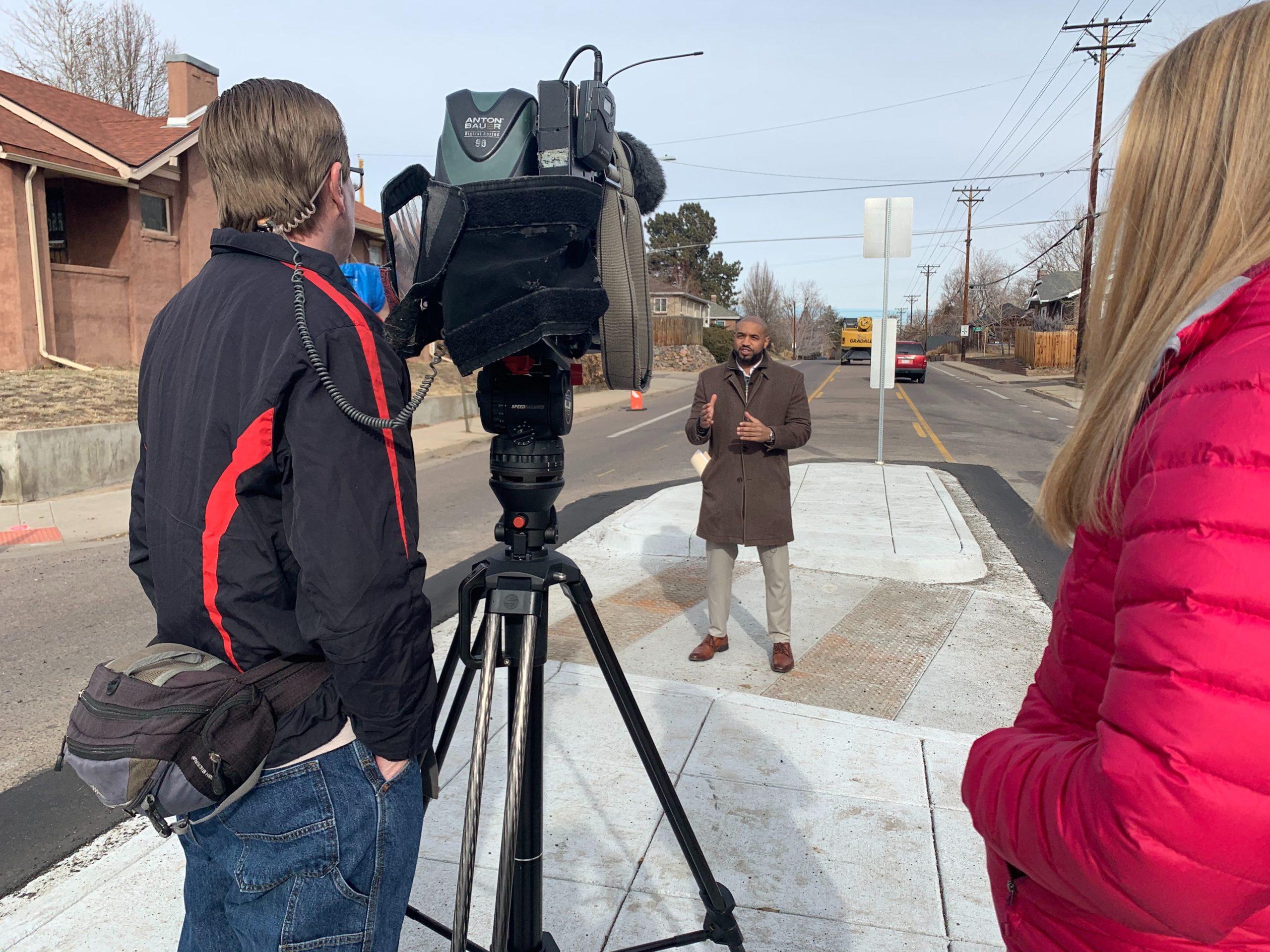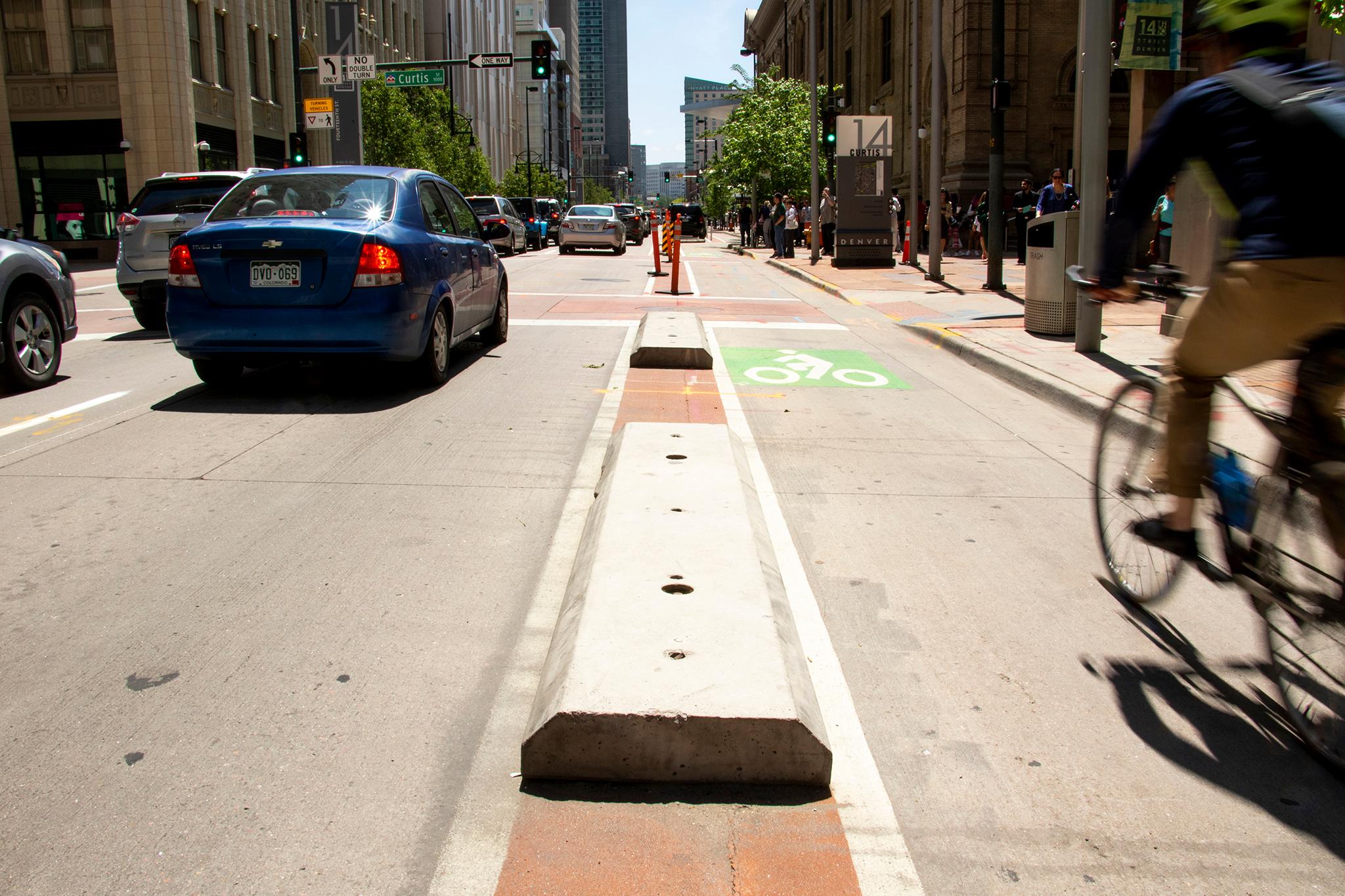City officials on Thursday unveiled a map showing where 125 miles of bike lanes will go over the next five years if all goes according to plan.
Mayor Michael Hancock first announced his commitment to 125 miles of bike lanes In 2018. During his State of the City address back then, he said the lanes would be built by 2023.
On Thursday, the mayor and Denver Transportation and Infrastructure Director Eulois Cleckley vowed to keep that promise by installing lanes more rapidly than in years past. Crews will combine street paving projects with the striping of standard bike lanes and the construction of protected lanes, which physically separate riders from cars, officials said.

The city also unveiled a map showing where crews intend to build bike lanes over the next three years. Denverites will see most of the bike infrastructure, including "neighborhood bikeways" -- streets designed to slow down cars and make walking and biking more attractive and safer -- in northwest and central Denver.
"The reality is we're ushering in the bicycle revolution in Denver, Colorado," Hancock said. "I grew up in the city. We didn't have bike lanes. We rode our little Huffys without bike lanes, protected or striped. And today we get a chance to see a city committing to creating comfort lanes for people to ride their bikes."
Hancock spoke atop a diverter on West 35th Avenue and Irving Street completed last week in West Highland. The concrete treatment, meant to slow drivers down, is part of a neighborhood bikeway stretching from Sheridan Boulevard to Kalamath Street on 35th. City transportation planners started on that project, which also includes roundabouts to calm traffic, about five years ago.

"Neighborhood bikeways are local streets that we optimize for safety, convenience and the comfort of people walking and riding bicycles in specific neighborhoods," Cleckley said.
Most of the new bike lanes will be "high comfort" lanes, as the city describes them, meaning they provide more separation between cyclists and cars with plastic posts, curbs or other treatments.
The 125-mile bikeway commitment aligns with Hancock's Vision Zero initiative to end traffic deaths citywide. Last year marked the deadliest year on Denver streets since 2000.
The city currently has 196 total lane miles of on-street bike lanes, according to Heather Burke, a spokeswoman for the streets department. The new bike lanes will be funded in part by voter-approved bonds worth $18 million. Money from the city's capital improvement program will also help.
Piep van Heuven, policy director at Bicycle Colorado and head of the Denver Streets Partnership, which advocates for better walking, biking and transit, applauded the mayor's initiative. She compared Denver to Austin and New Orleans, which have committed to building around 70 miles of bike lanes in the same period of time. She also mentioned New York, which has committed to building 250 miles.
Infrastructure like this "saves lives," she said.
This story has been updated to correct Burke's last name preference. Due to incorrect information from DOTI, a previous map incorrectly showed a fully funded bikeway of Broadway north of Speer and has been updated.













